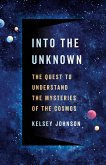The Quest To Discover Life Beyond Earth.
"The 'dreams' that I write of are not the usual ones, the images that come up in our minds involuntarily during certain stages of sleep, but rather the hopes and expectations that we have lavished upon other worlds around us."-from the Preface.
The surprisingly long history of debate over extraterrestrial life is full of marvelous visions of what life "out there" might be like, as well as remarkable stories of alleged sightings and heated disputes about the probability that life might actually have arisen more than once. In Planetary Dreams, acclaimed author Robert Shapiro explores this rich history of dreams and debates in search of the best current answers to the most elusive and compelling of all questions: Are we alone?
In his pursuit, he presents three contrasting views regarding how life might have started: through Divine Creation, by a highly unlikely stroke of luck, or by the inevitable process of a natural law that he terms the Life Principle. We are treated to a lively fictional dinner debate among the leading proponents of these schools of thought-with the last named group arguing that life has almost surely formed in many places throughout the universe, and the others that life may well be entirely unique to our own blue planet. To set the stage for a deep exploration of the question, the author then leads us on a fantastic journey through the museum of the cosmos, an imagined building that holds models of the universe at different degrees of magnification. We then journey deep into inner space to view the astonishingly intricate life of a single cell, and learn why the origin of such a complex object from simple chemical mixtures poses one of the most profound enigmas known to science.
Writing in a wonderfully entertaining style, Shapiro then reviews the competing theories about the start of life on Earth, and suggests the debate may best be settled by finding signs of life on the other worlds of our solar system. He takes us on a guided tour of the most likely sites, from the underground hot springs of Mars to the ice-covered oceans of Jupiter's airless moons.
Along the way, he shares a wealth of fascinating stories about the ways in which our views of the heavens have changed, from the theories of ancient philosphers, who argued that the Moon was inhabited, to the current Origins and Astrobiology initiatives of NASA. He describes the probes that will be sent out in the near future in pursuit of the first compelling physical evidence of life beyond Earth, and concludes with a radical suggestion about how this quest might be supported through the next millennium. As we launch into an exciting new era of space exploration, Planetary Dreams offers a thoughtful and entertaining exploration of both the history of our hopes and expectations and a vision of a possible future in which the discovery of life elsewhere will provide a new view of our place in the universe.
"The 'dreams' that I write of are not the usual ones, the images that come up in our minds involuntarily during certain stages of sleep, but rather the hopes and expectations that we have lavished upon other worlds around us."-from the Preface.
The surprisingly long history of debate over extraterrestrial life is full of marvelous visions of what life "out there" might be like, as well as remarkable stories of alleged sightings and heated disputes about the probability that life might actually have arisen more than once. In Planetary Dreams, acclaimed author Robert Shapiro explores this rich history of dreams and debates in search of the best current answers to the most elusive and compelling of all questions: Are we alone?
In his pursuit, he presents three contrasting views regarding how life might have started: through Divine Creation, by a highly unlikely stroke of luck, or by the inevitable process of a natural law that he terms the Life Principle. We are treated to a lively fictional dinner debate among the leading proponents of these schools of thought-with the last named group arguing that life has almost surely formed in many places throughout the universe, and the others that life may well be entirely unique to our own blue planet. To set the stage for a deep exploration of the question, the author then leads us on a fantastic journey through the museum of the cosmos, an imagined building that holds models of the universe at different degrees of magnification. We then journey deep into inner space to view the astonishingly intricate life of a single cell, and learn why the origin of such a complex object from simple chemical mixtures poses one of the most profound enigmas known to science.
Writing in a wonderfully entertaining style, Shapiro then reviews the competing theories about the start of life on Earth, and suggests the debate may best be settled by finding signs of life on the other worlds of our solar system. He takes us on a guided tour of the most likely sites, from the underground hot springs of Mars to the ice-covered oceans of Jupiter's airless moons.
Along the way, he shares a wealth of fascinating stories about the ways in which our views of the heavens have changed, from the theories of ancient philosphers, who argued that the Moon was inhabited, to the current Origins and Astrobiology initiatives of NASA. He describes the probes that will be sent out in the near future in pursuit of the first compelling physical evidence of life beyond Earth, and concludes with a radical suggestion about how this quest might be supported through the next millennium. As we launch into an exciting new era of space exploration, Planetary Dreams offers a thoughtful and entertaining exploration of both the history of our hopes and expectations and a vision of a possible future in which the discovery of life elsewhere will provide a new view of our place in the universe.
Dieser Download kann aus rechtlichen Gründen nur mit Rechnungsadresse in A, D ausgeliefert werden.









